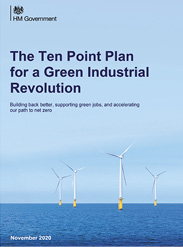FST JOURNAL
A Systems Approach
The debate
The formal presentations were followed by a panel session in which topics covered included: the scope of the challenge; national priorities; potential conflicts between national/international programmes and those of particular bodies; changing behaviours; and the risk of unintended consequences.
The audience noted that the challenge was massive. Is there a model that can encompass all aspects? Do we have the data with which to make a relevant analysis? All the focus at present is on 2050, but planning should be looking further ahead, perhaps with the aim of extracting carbon from the atmosphere and going beyond net zero to try to reverse some of the changes. It was also noted that the challenge is global. It is not enough for the UK to decarbonise: it only matters if the whole world is able to decarbonise.
It was pointed out that a systems approach is designed to accommodate complexity, whether in the national arena or the international sphere. Coordinating innovation at an international level is absolutely essential in this regard.
Different countries will have different priorities. For a developing country, producing cheap energy is a central part of any growth strategy – it was after all a fundamental feature of the UK success story. The decarbonisation process has to proceed in a way that is not going to hurt their growth but rather improve overall outcomes. A systems approach is the right way to show that a smooth transition is possible.
Many organisations are pursuing their own net zero strategies. While this may be commendable in itself, it could hinder a whole system approach. Individual behaviour, in addition, does not necessarily fit with a macro model of energy supply.
Achieving net zero needs long term commitment, far beyond the normal political cycle. And it is not a matter of political will and foresight. It also concerns the day-to-day lives of ordinary people: issues like the political acceptability of changing everyone’s boiler, changing domestic heating systems and perhaps changing personal transport arrangements. How do we take politicians, and the people who vote for the politicians, with us in this process?
There has to be a clear vision, one that the people understand and to which they are committed. The 10 Point Plan points out to industry, to designers and to investors where the priorities currently are. It does not address the public about their behaviours and what they need to change, though. Overall demand can be reduced if this were to happen.
In a systems context, net zero carbon dioxide does not cover methane or nitrous oxide emissions, for example. Simply achieving net zero risks offloading emissions into non-measured contexts. That returns to the issue of systems and ‘systems of systems’ in order to capture all the variables and avoid unintended consequences.
 The Ten Point Plan report
The Ten Point Plan report
